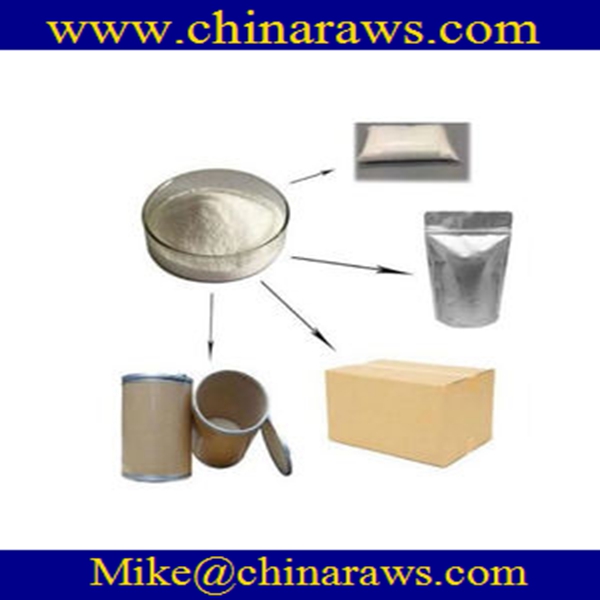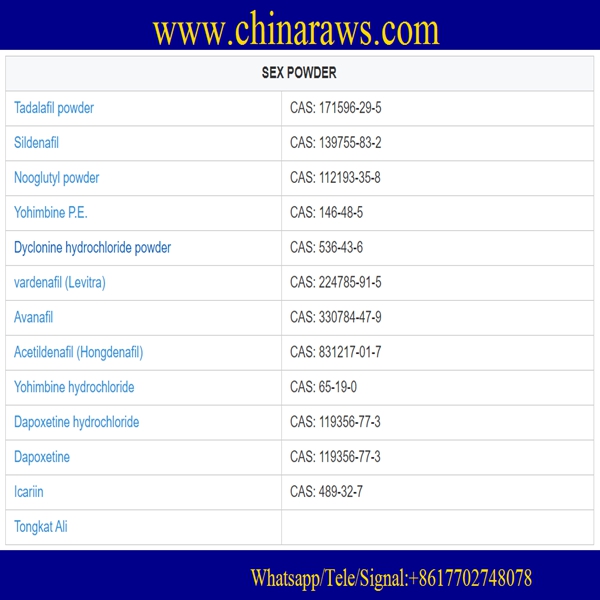Lidocaine Hydrochloride Powder, china source , medical grade Powder, Lidocaine Hydrochloride Powder buying from china.
Email:Mike@chinaraws.com
Whatsapp/signal/Telegram/Wechat:+8617702748078
Site:www.chinaraws.com
CAS 73-78-9,
Lidocaine Hydrochloride 99% Medical Grade Powder available
Lidocaine Hydrochloride Physical and chemical properties
White crystal, odorless, slightly bitter and numb. Easily soluble in water, ethanol and organic solvents,but insoluble in ether. The aqueous solution does not decompose under acid and alkali conditions, and it rarely deteriorates after repeated autoclaving.
Local anesthetics and antiarrhythmic drugs.
Lidocaine Hydrochloride
CAS : 73-78-9
lidocaine hydrochloride
English alias:
LIDOCAINE HCL;
2-(diethylamino)-N-(2,6-dimethylphenyl)acetamide,hydrochloride;
Lidocaine hydrochloride;
Lignocaine hydrochloride;
CAS number:73-78-9
Molecular formula:C14H23ClN2O
Molecular weight:270.79800
Accurate quality:270.15000
PSA:32.34000
Appearance and traits:White crystal powder
Melting point:80-82°C
Boiling point:350.8ºC at 760 mmHg
Flash point:166ºC
Storage conditions:Refrigerator
Lidoca hydrochloride is a local anesthetic and antiarrhythmic drug. Clinically, it is mainly used for infiltration anesthesia, epidural anesthesia, surface anesthesia (including mucosal anesthesia during thoracoscopy or abdominal surgery) and nerve conduction block. It can also be used for ventricular premature beats and ventricular tachycardia after acute myocardial infarction, as well as for digitalis poisoning, cardiac surgery and ventricular arrhythmia caused by cardiac catheterization. But it is usually not effective for supraventricular arrhythmia.
Lidoca hydrochloride is an amide local anesthetic. After blood absorption or intravenous administration, it has obvious excitement and inhibitory biphasic effect on the central nervous system, and there may be no precursor excitement. When the blood concentration is low, analgesia and drowsiness, pain threshold increase; with increasing dose Large, enhanced effect or toxicity, anticonvulsant effect at sub-toxic blood concentration; convulsions can occur when the blood concentration exceeds 5μg·ml-1. Lidocaine hydrochloride at low doses can promote K+ efflux in myocardial cells, reduce myocardial autonomy, and have anti-ventricular arrhythmia effects; at therapeutic doses, it can affect the electrical activity, atrioventricular conduction and myocardial Contraction has no obvious effect; further increase in blood drug concentration can cause cardiac conduction velocity to slow, atrioventricular block, inhibit myocardial contractility and decrease cardiac output.
Lidocaine hydrochloride has the characteristics of strong penetrating, strong dispersibility, and fast onset. Its anesthetic efficacy is twice that of procaine, and its toxicity is 1. The anesthesia effect can appear 5 minutes after the medication, and the anesthesia effect can last for 1 to 1.5 hours, which is 50% longer than procaine. After absorption, it can inhibit the central nervous system, and can inhibit ventricular autonomy, shorten the refractory period, can be used to control ventricular tachycardia, treat ventricular premature beats, ventricular tachycardia and ventricular fibrillation and other arrhythmic symptoms. It is effective for heart disease or cardiac arrhythmia caused by cardiac glycosides, but it is not effective for supraventricular tachycardia. This product has a fast action, short duration, and is ineffective after oral administration. It is often administered as an intravenous injection.


